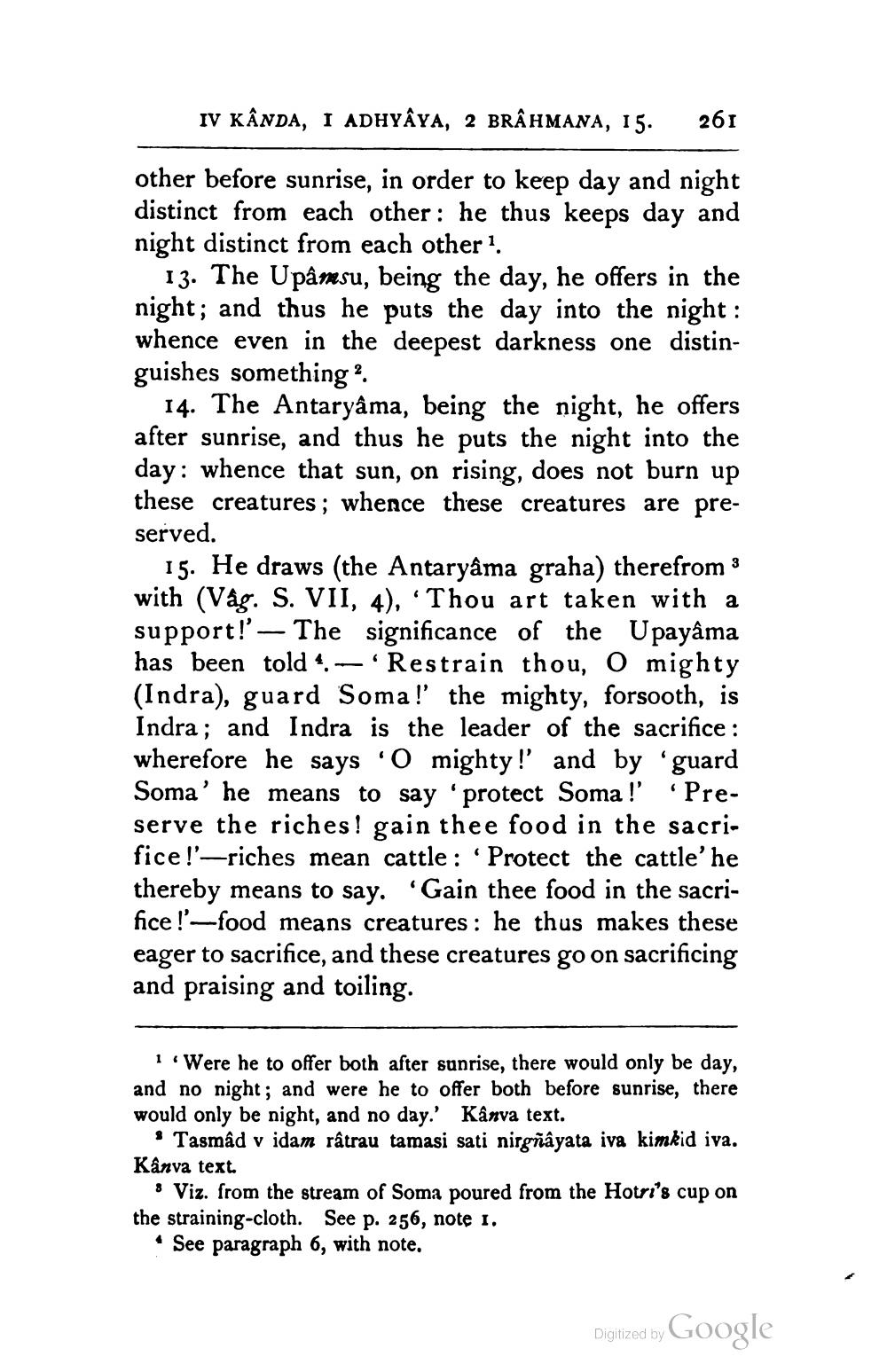________________
IV KÂnda, I ADHYÂYA, 2 BRÂHMANA, 15.
261
other before sunrise, in order to keep day and night distinct from each other: he thus keeps day and night distinct from each other?
13. The Upâmsu, being the day, he offers in the night; and thus he puts the day into the night : whence even in the deepest darkness one distinguishes something ?
14. The Antaryâma, being the night, he offers after sunrise, and thus he puts the night into the day: whence that sun, on rising, does not burn up these creatures; whence these creatures are preserved.
15. He draws (the Antaryâma graha) therefrom 3 with (Vág. S. VII, 4), 'Thou art taken with a support!' – The significance of the Upayâma has been told 4: - Restrain thou, O mighty (Indra), guard Soma!' the mighty, forsooth, is Indra; and Indra is the leader of the sacrifice: wherefore he says 'O mighty!' and by 'guard Soma' he means to say 'protect Soma!' Preserve the riches! gain thee food in the sacrifice!'-riches mean cattle : Protect the cattle'he thereby means to say. 'Gain thee food in the sacrifice !-food means creatures: he thus makes these eager to sacrifice, and these creatures go on sacrificing and praising and toiling.
1.Were he to offer both after sunrise, there would only be day, and no night; and were he to offer both before sunrise, there would only be night, and no day.' Kanva text.
* Tasmad v idam râtrau tamasi sati nirgñayata iva kimkid iva. Kanva text.
• Viz. from the stream of Soma poured from the Hotri's cup on the straining-cloth. See p. 256, note 1.
See paragraph 6, with note.
Digitized by Google




